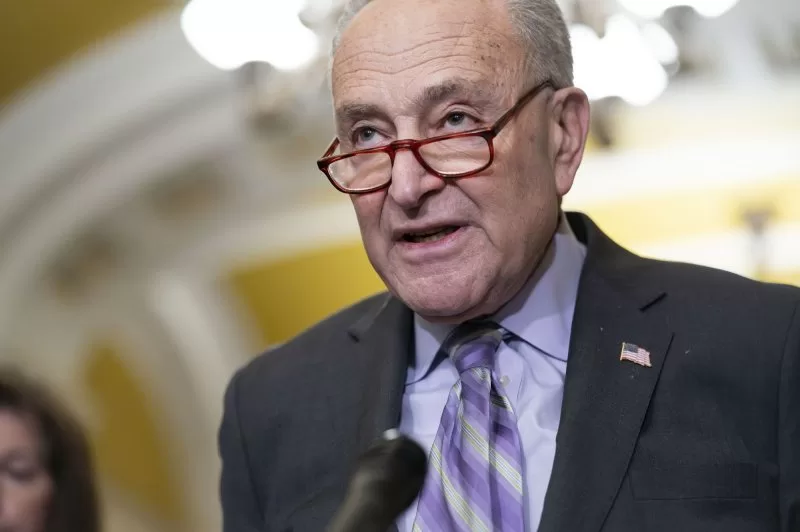1 of 2 | After the Senate passed a $95 billion foreign aid package early Tuesday, Senate Majority Leader Chuck Schumer, D-N.Y., said “Today, we send a clear bipartisan message of resolve to our allies in NATO.” Photo by Bonnie Cash/UPI |
License PhotoFeb. 13 (UPI) — The Senate comfortably passed a bipartisan $95 billion emergency defense package, with $60 designated for Ukraine, early Tuesday, amid House Speaker Mike Johnson‘s objections to the bill.
The Senate managed to overcome an overnight GOP filibuster before approving the bill 70-29 with 22 Republicans joining most Democrats. The funds would support Ukraine in its nearly two-year fight with Russia after Moscow invaded the country in 2022.
Sens. Rand Paul, R-Ky., and Mike Lee, R-Utah, led the filibuster that delayed the passage until 5 a.m. Tuesday.
“Today, we make Vladimir Putin regret the day he questioned America’s resolve,” said Senate Majority Leader Chuck Schumer, D-N.Y. “Today, we send a clear bipartisan message of resolve to our allies in NATO.”
Two Democrats, Sens. Jeff Merkley of Oregon and Peter Welch of Vermont, voted against the bill, along with Sen. Bernie Sanders, I-Vt., because of military assistance to Israel.
Johnson warned senators before their vote that he would not support the bill in the House, casting serious doubt over its passage or if it would even be brought up for a vote.
“In the absence of having received any single border policy change from the Senate, the House will have to continue to work its own will on these important matters,” Johnson said Monday, according to the Washington Post. “America deserves better than the Senate’s status quo.”
The Senate bill sends $60.1 billion in aid to Ukraine, $14.1 billion to assist Israel in its fight against Hamas, and another $10 billion in humanitarian aid to help civilians in conflict zones, including Gaza, and to deter Chinese aggression in the Indo-Pacific region.
The majority of Republicans in the House and Senate have lined up behind former President Donald Trump, who is calling for no foreign assistance to be given ahead of stricter measures at the U.S. southern border as he seeks re-election in November.

